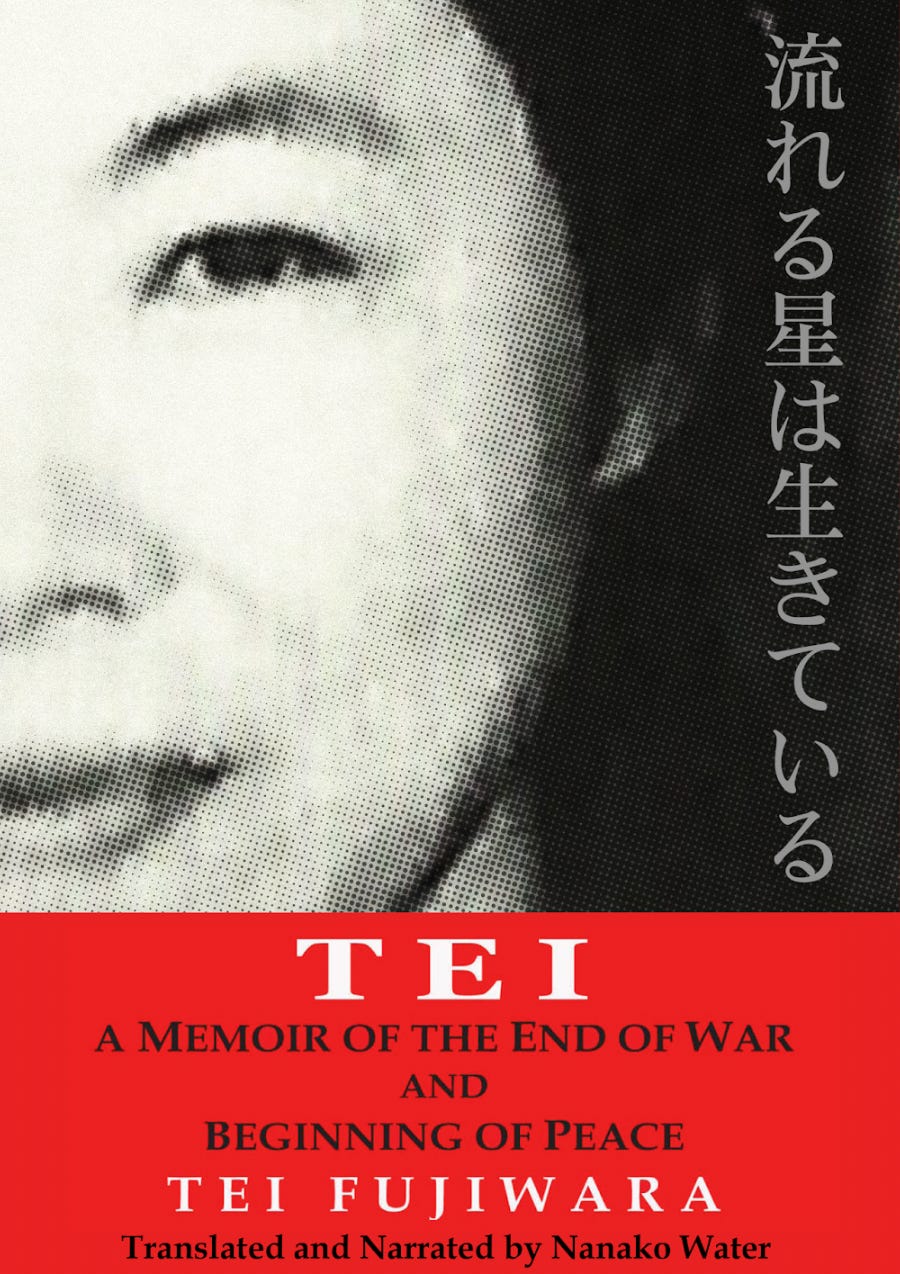
Mom, a Japanese immigrant from Tokyo, was thirteen when WWII finally ended. Her home was burned down in March 1945, “the most destructive single air attack in human history” and her mother died in the mass starvation that followed Japan’s surrender. Not surprisingly Mom couldn’t talk about her experiences.
But she shared a Japanese woman’s war memoir with me that seemed to speak for her. When I was a teenager, Mom introduced me to a visiting math professor. This professor’s mother was Tei Fujiwara. When I was older and could appreciate the significance of this memoir, I decided to translate it and write it in English. Since my Japanese listening skills were much better than my reading skills, I asked Mom to read it out loud for me. But it was hard. Many times I had to stop the tape recorder because Mom would break down in tears.
Recently, with help from my friend Jay Rubin (translator of Haruki Murakami’s work), I edited and rewrote the entire book. Going through the book word by word reminded me how poignant and rare this story is. Women don’t have the opportunity to share their experience of war and its aftermath.
On the morning news I hear about Venezuelans desperately crawling through the razor wire on the Mexican border. Or see images of hollow-eyed Ukrainians fleeing from their homes. Worst of all was the photo of a toddler washed up on the shore of the Mediterranean Sea. Reading and writing Tei’s memoir again reminded me how Tei’s story continues today. Ironically, reading her story gives me hope in the face of such tragedies.
Thanks, Mom for sharing this story with me. (She passed away during the pandemic.) I hope you will also take the time to read or listen to Tei’s story.
Tei, a memoir of the end of war and beginning of peace. Print, e-book and audiobook editions available through Amazon, Kindle and Audible.
Audiobook sample1×0:00-1:22https://drive.google.com/file/d/1DILsTbLvgjppJWYJi98MMSkkUTS1UNTv/view?usp=drive_link
I would love to hear your thoughts. Write me here or on a book store website.